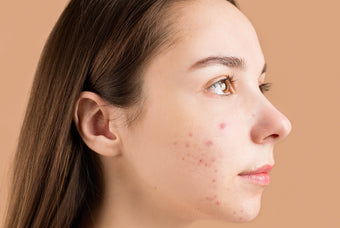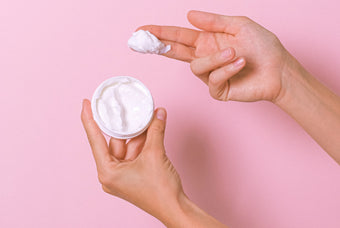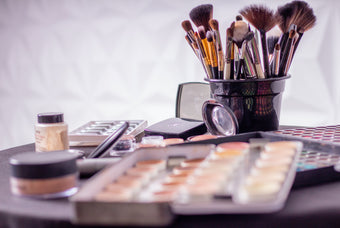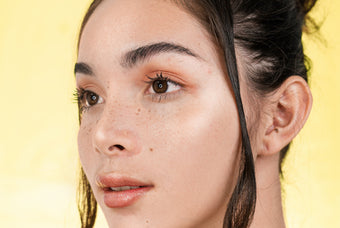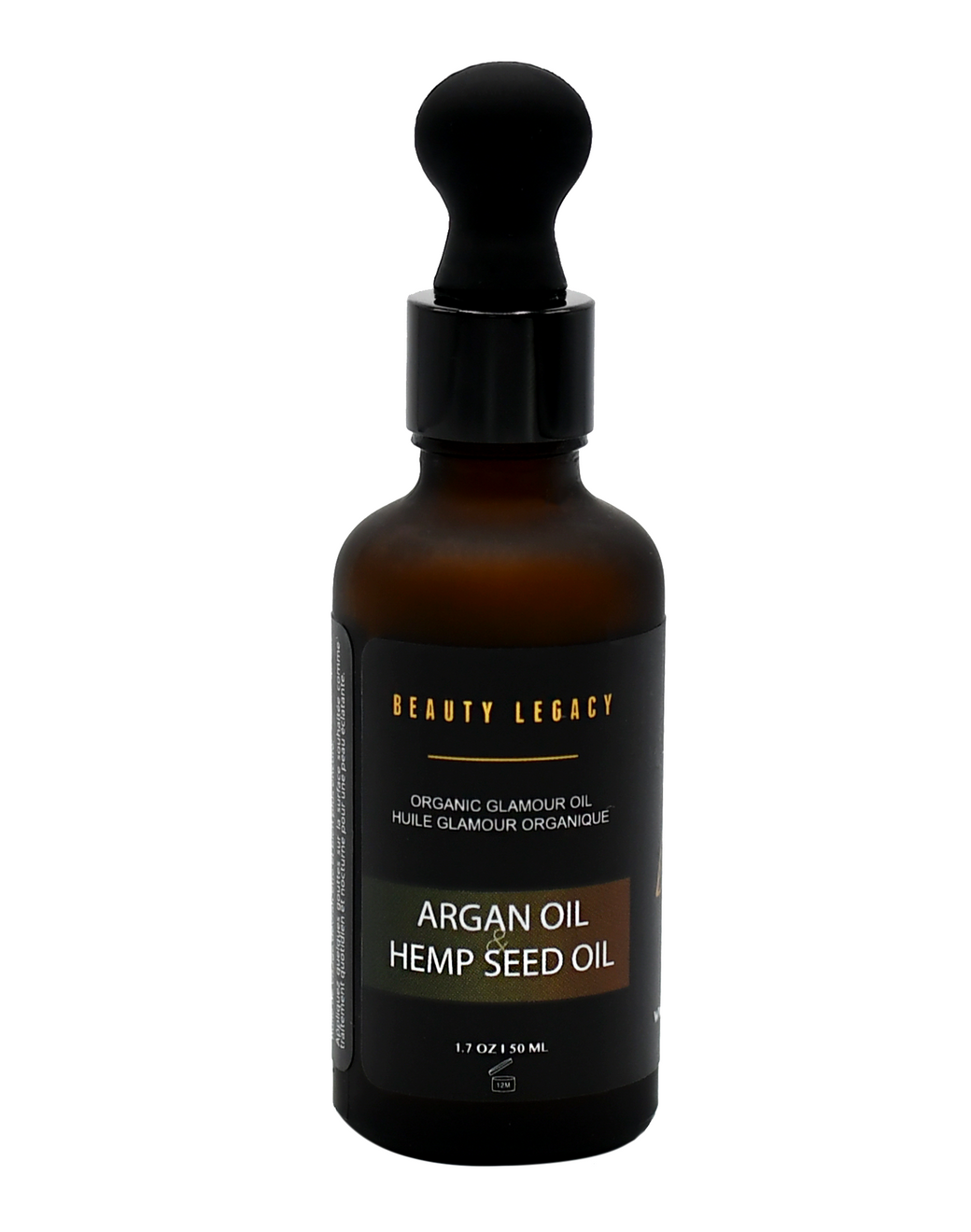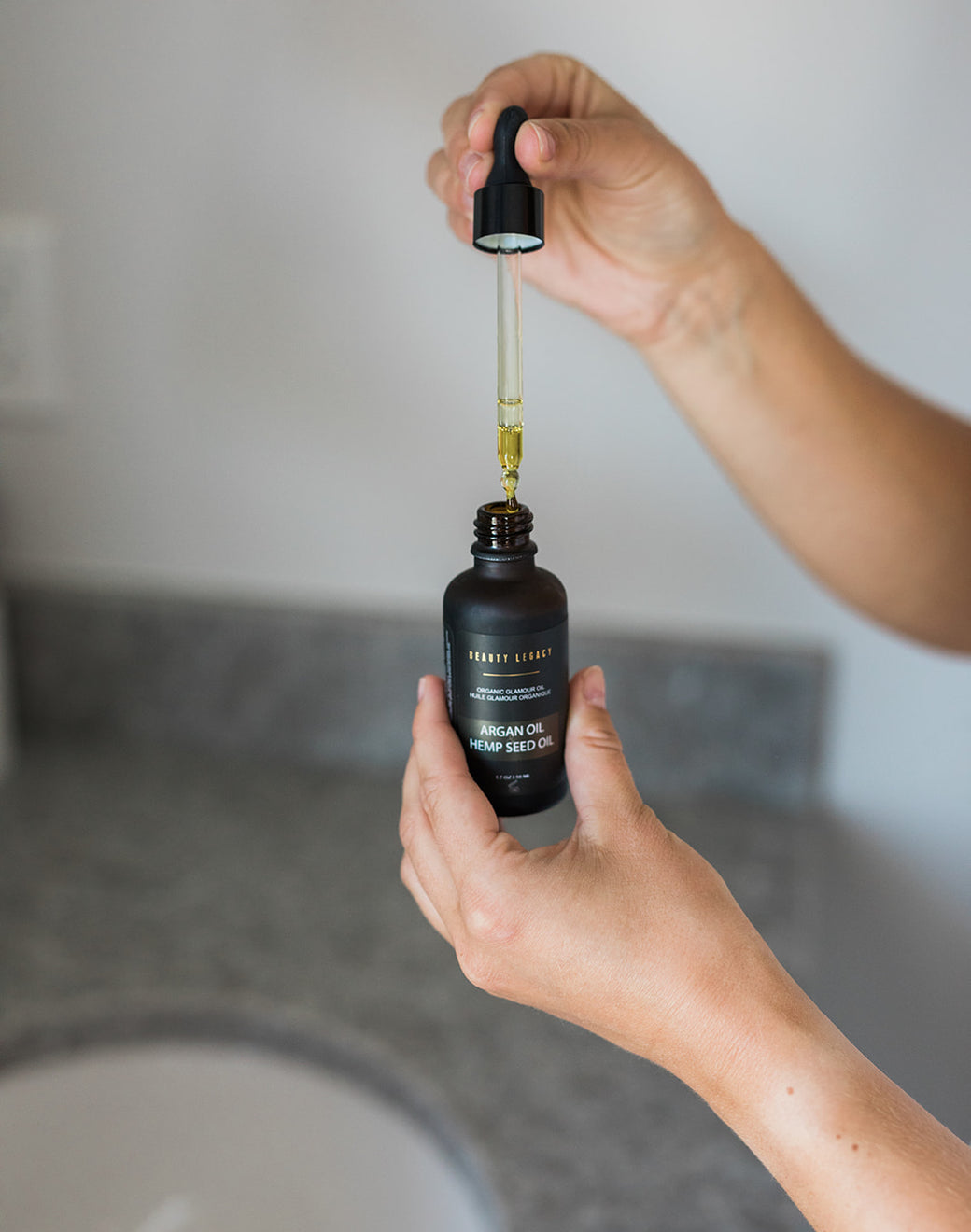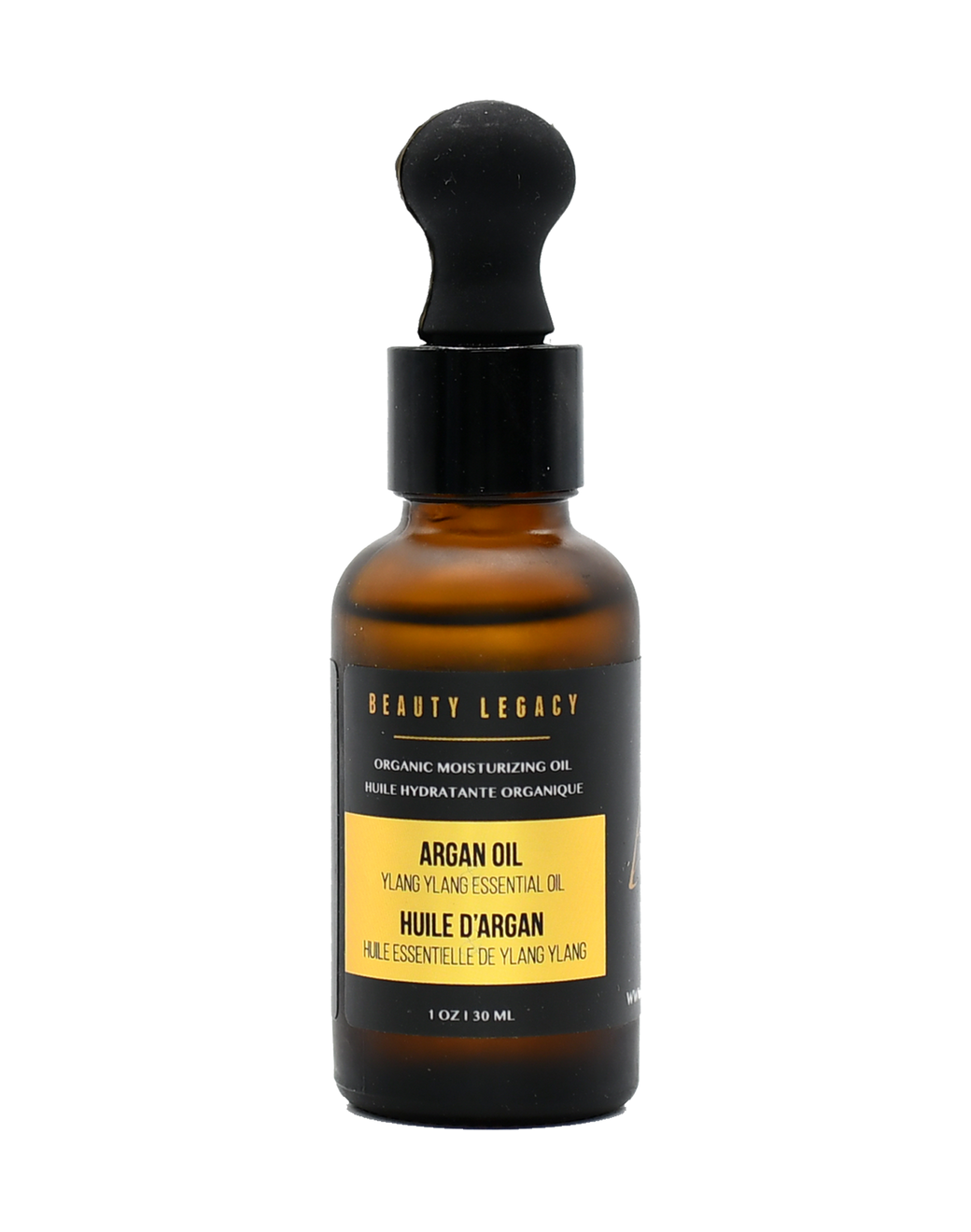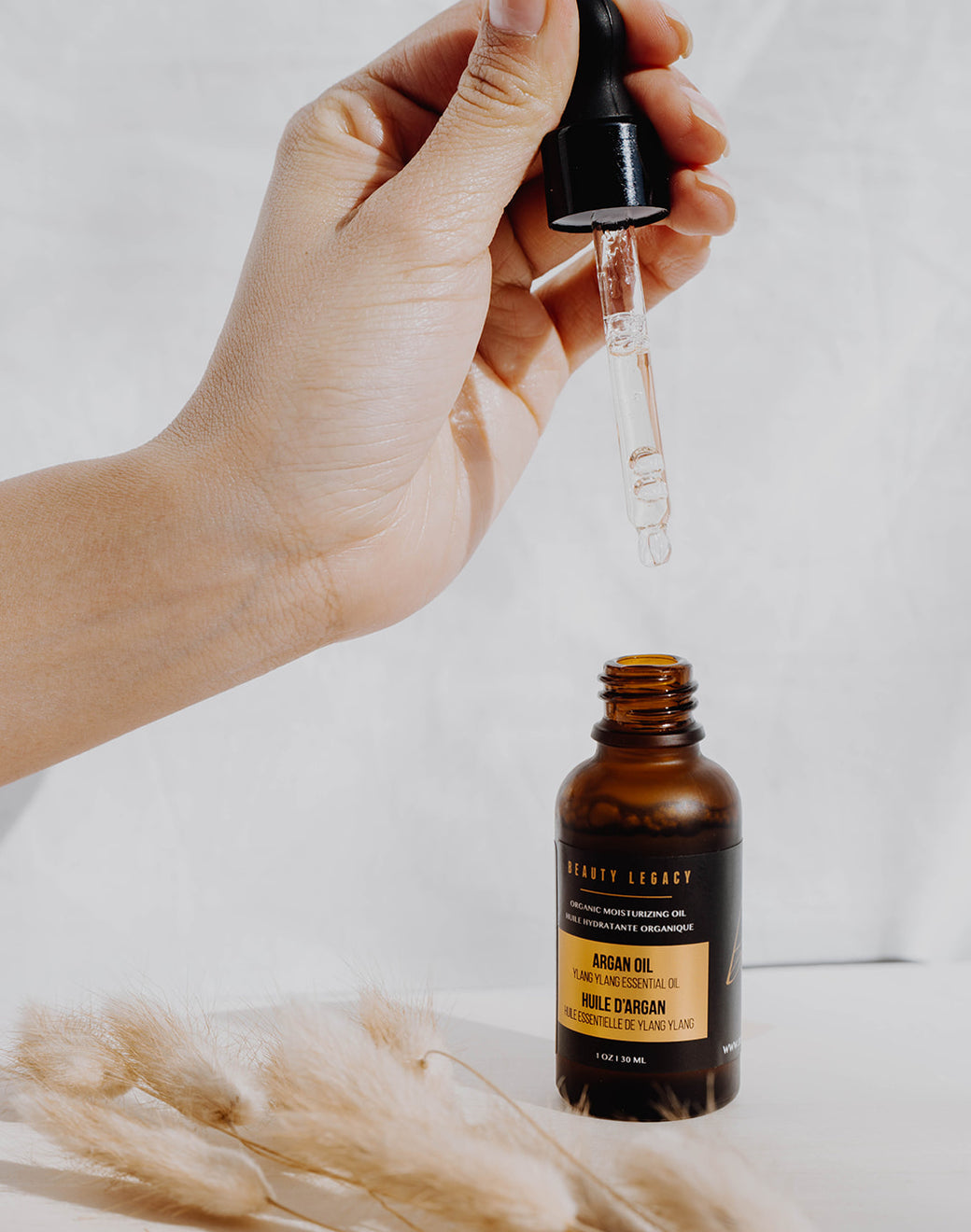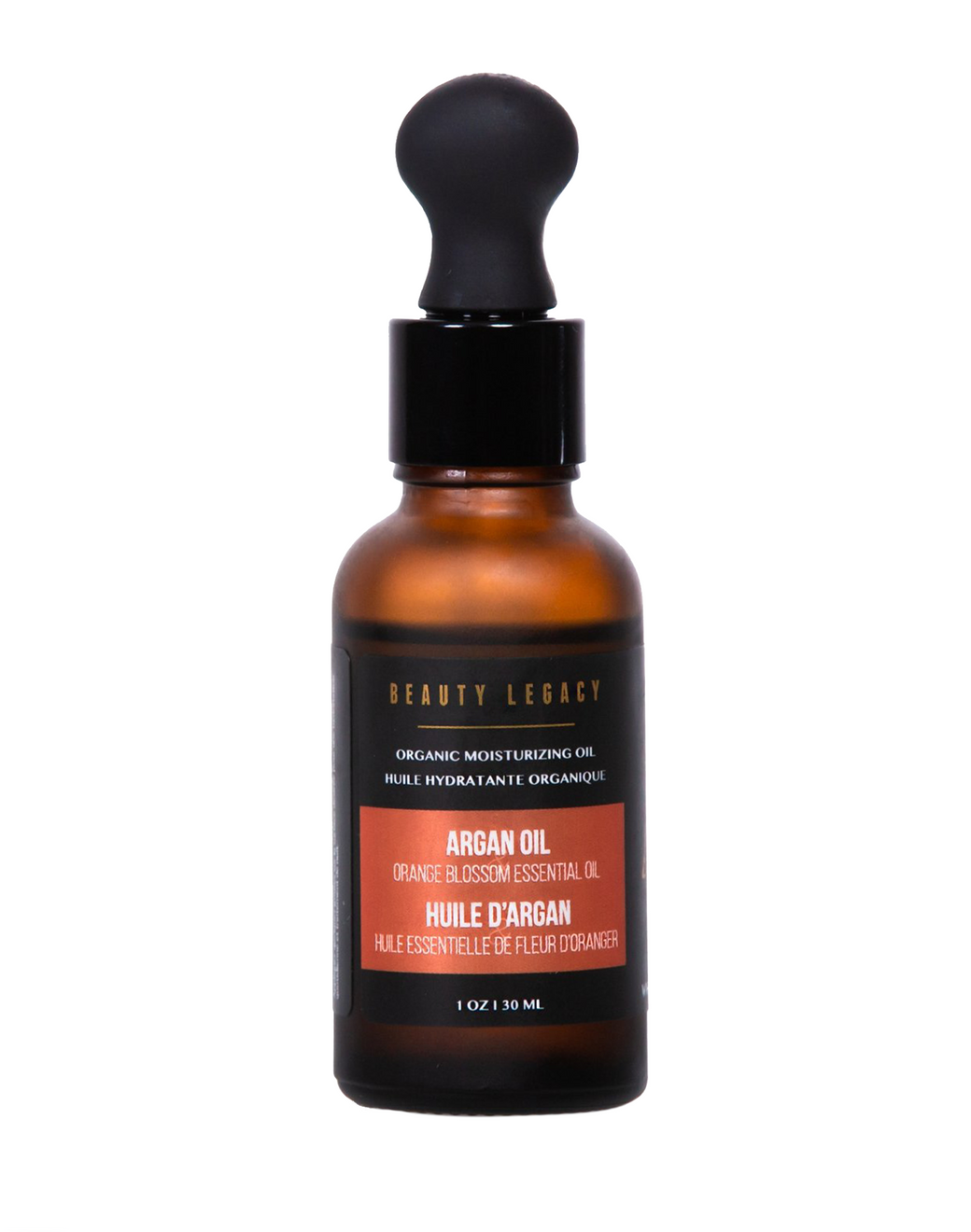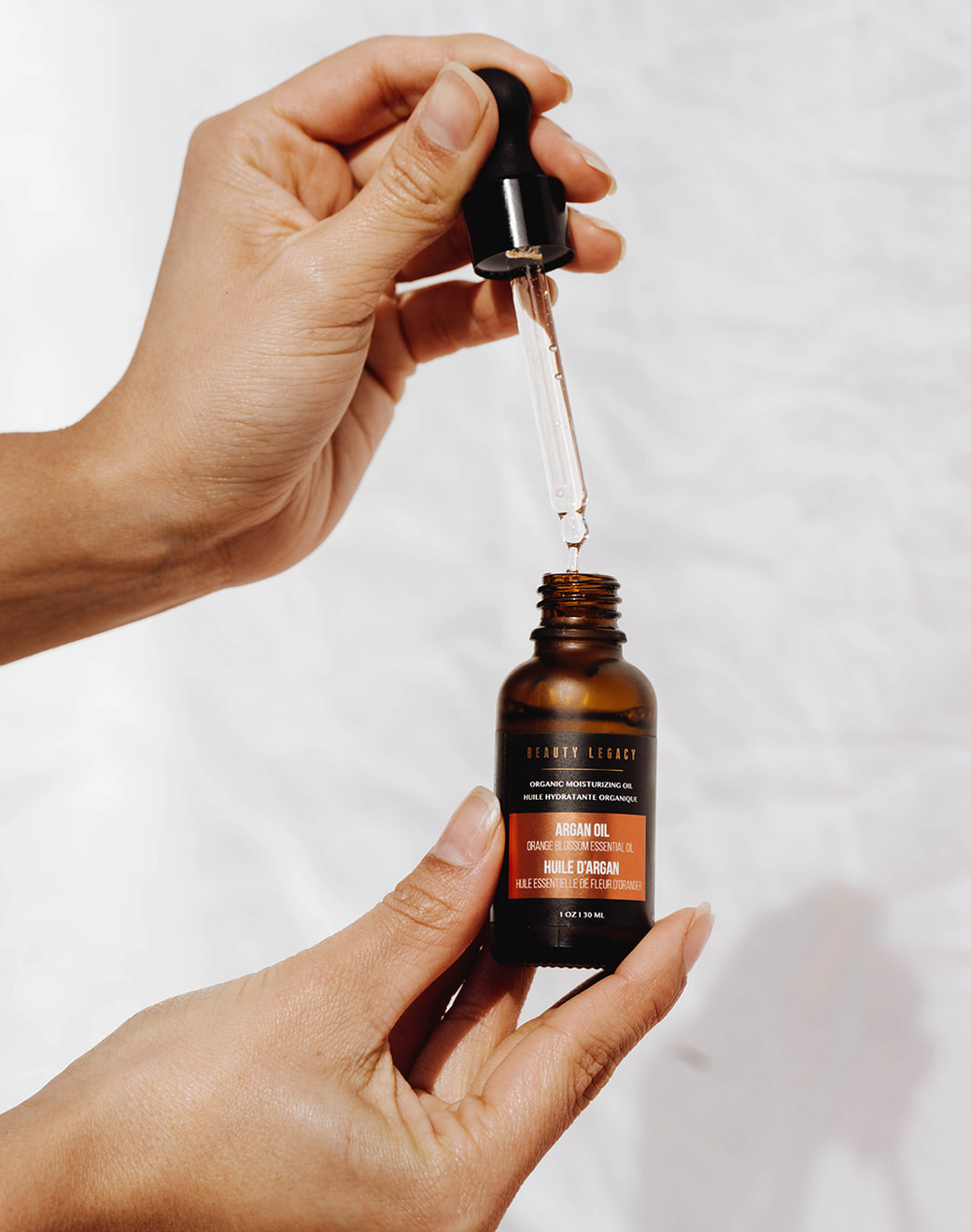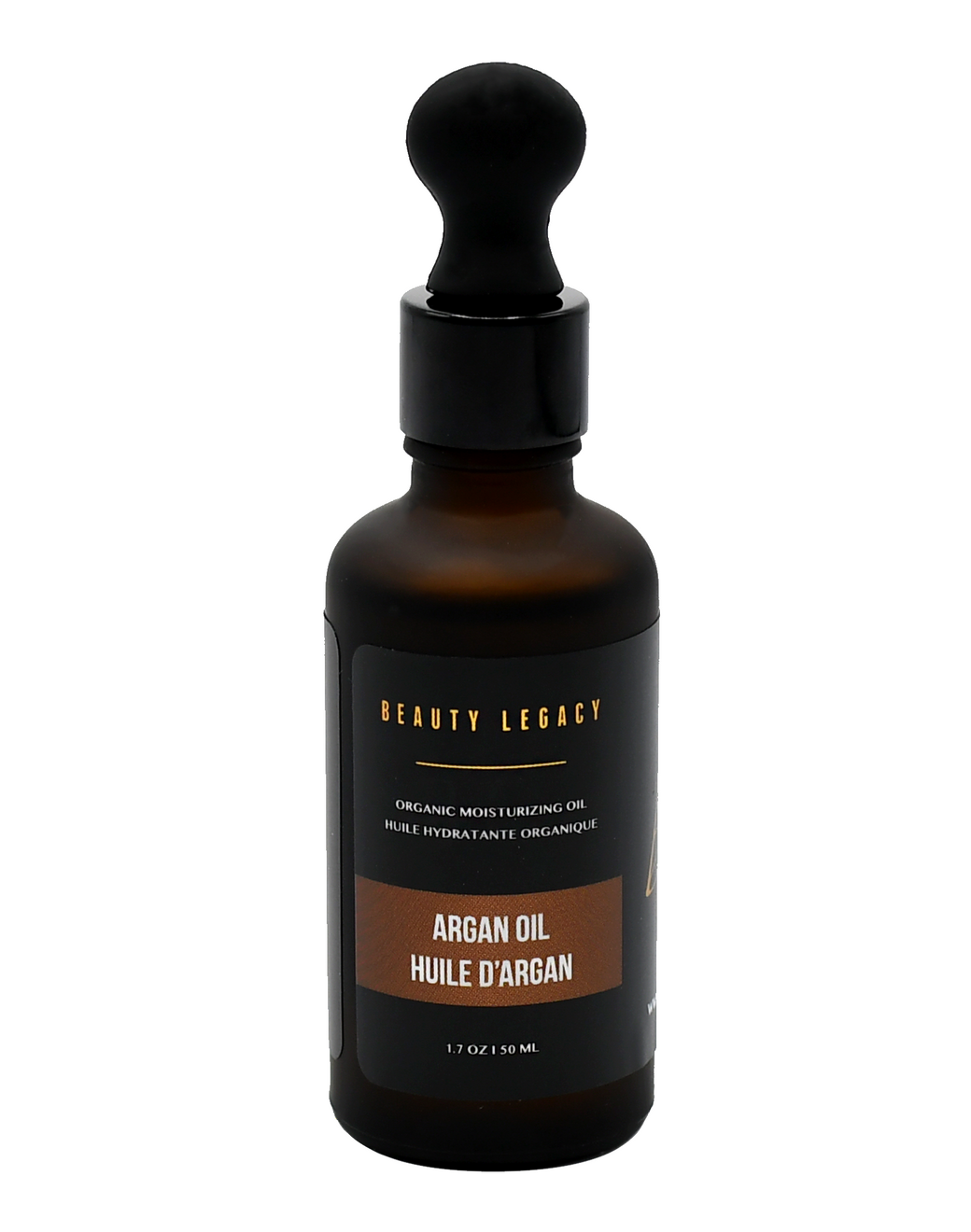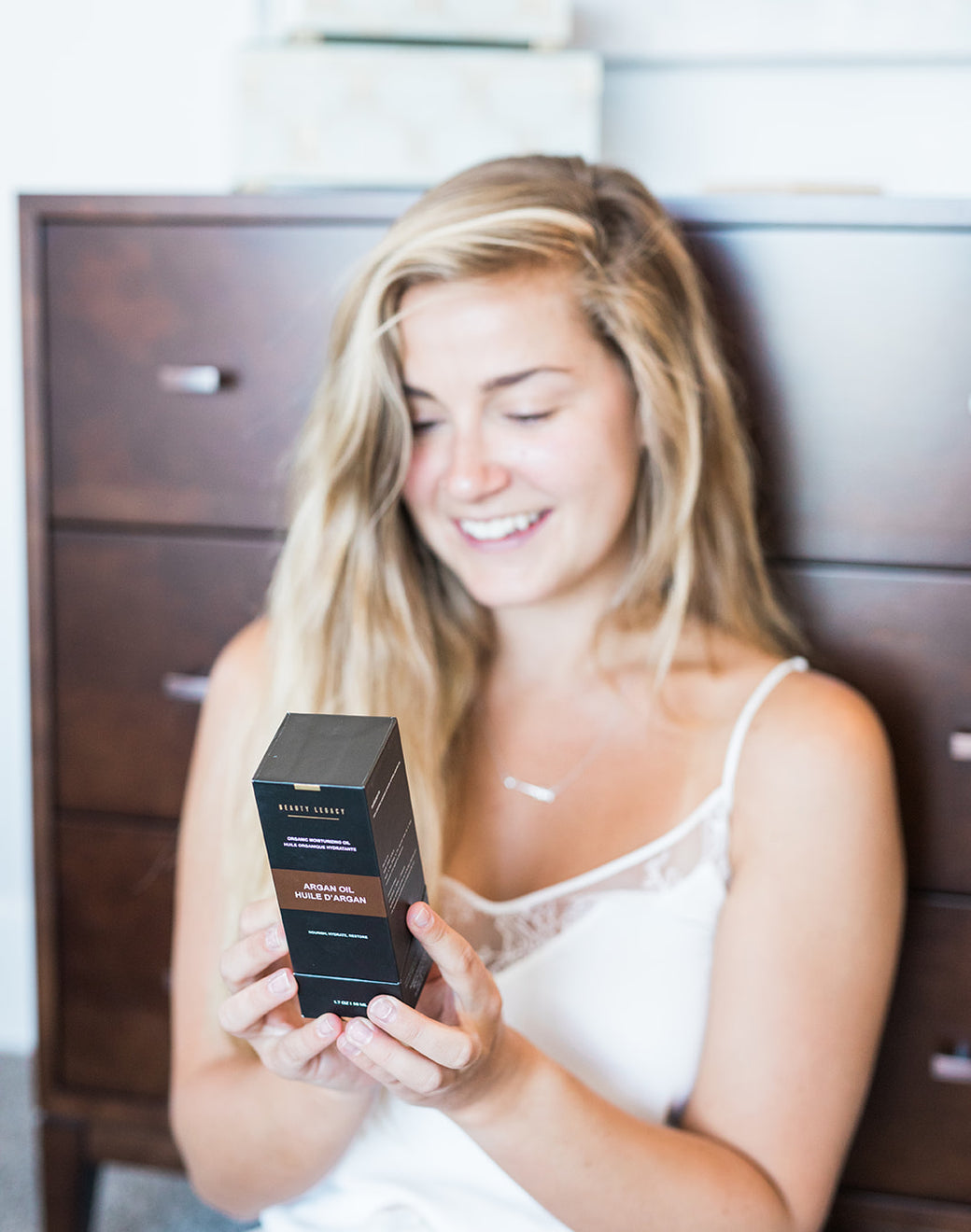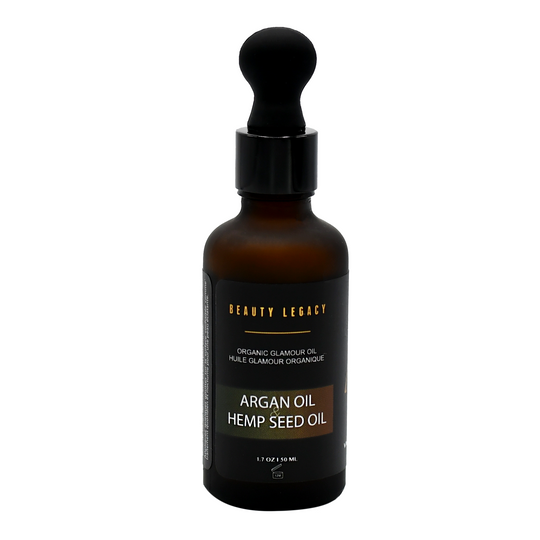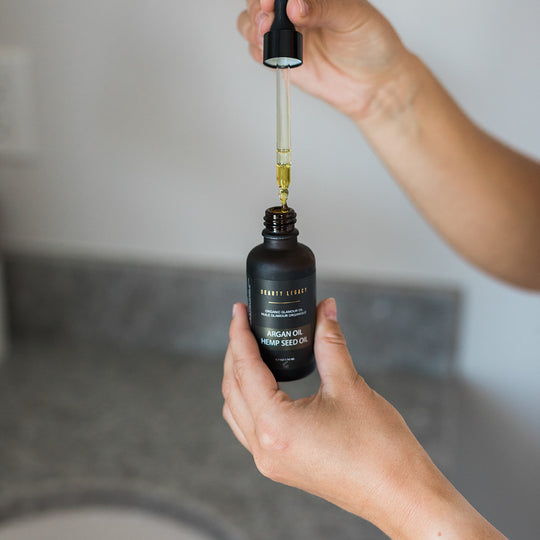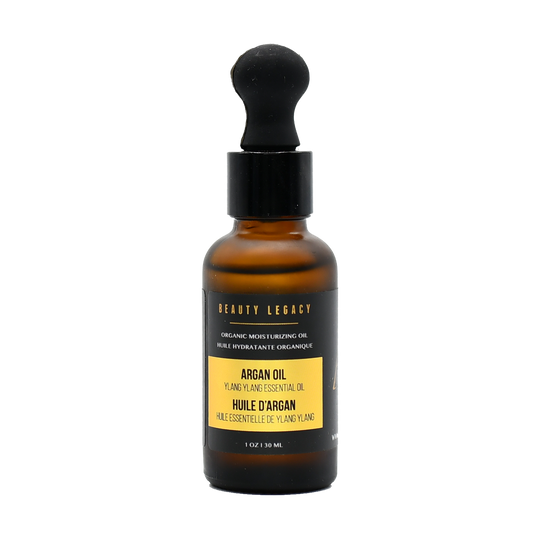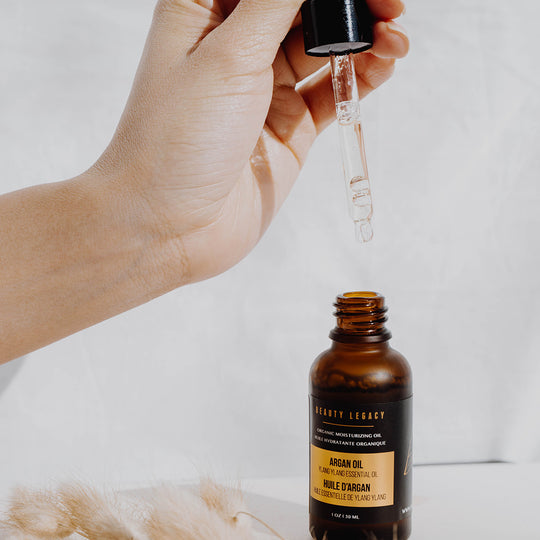Today I want to talk about a slightly controversial skincare treatment that has been quite a hot topic for the last few years in the beauty industry: Facial Oils. Some love them and swear by them, while others are intrigued but have yet to give them a try, perhaps in fear that they won’t suit their skin. If you fall into the latter category, then make sure to stick around because I’m going to share with you all of the juicy details regarding facial oils including their benefits, the best oil for your skin type, and how to use them properly to get the best results possible!
Let’s dive right in!
What are facial oils?

Face oils are fatty substances extracted from oil-bearing plants that are composed of three types of fatty acids which are essential for the health and beauty of the skin. These fatty acids will bring suppleness, tonicity but also good hydration to the skin
Used since the dawn of time, facial oils are known for their beneficial properties for the skin. Moisturizing, purifying, repairing, or anti-aging: there is a facial oil for all kinds of skin types. Full of vitamins and lipids, oils are a great addition to your beauty rituals.
Why use facial oils?
First, it is important to know that our bodies naturally produce oil. However, as we age, this production decreases significantly. As a result, the skin on the face becomes dry, which can lead to breakouts, fine lines, and deeper wrinkles over time. Using a facial oil, therefore, helps to keep the skin balanced and moisturized while protecting it from its environment.
Light and penetrating oils, like Argan oil for example, also moisturize the skin without leaving a greasy film, and can even have a self-regulating function on faces with excess sebum. Excessive sebum production is often a reaction of your skin to an external aggression (a cosmetic product that is too harsh, for example), so facial oils provides the necessary fatty substances to maintain healthy, moisturized skin and thus control shine and excess sebum.
But, won’t they make my skin oily?
Contrary to popular belief, a facial oil does not leave the skin greasy unless you choose one that is not adapted to your skin type or if you use too much of it. In this last case, some of it remains on the surface, causing your skin to shine and stick. It is therefore important to use an oil that suits your skin type and condition and in reasonable quantities, taking a little time to massage your skin well.
So, which one should I use for my skin type?
Facial oils, contrary to common assumptions, are suited for all skin types. Yes, even acne-prone and oily skin! In terms of results, you may expect a whole new glow in the near future! The benefit of an oil is that it is the only substance that genuinely addresses skin issues in the long run.
Dry skin
If your skin is dry you need an oil that will help rebuild your skin's natural moisture barrier. For that, you can apply oils rich in unsaturated fatty acids, like argan oil for example.
If your skin tends to be on the drier side, most oils are suitable for you. Avocado oil, argan oil, sweet almond, wheat germ or borage, are particularly nourishing. These oils will easily seep into your skin and repair it from within.
Oily skin
Contrary to what you might imagine, facial oils are the biggest allies of mixed and oily skin, that is if you choose light and penetrating oils. Ylang-Ylang,Jojoba, hazelnut, rosemary and desert date oils regulate, moisturize and nourish the skin without providing excess lipids. They penetrate without leaving a greasy film and give the complexion a matte and velvety finish.
If you have oily skin, the Argan Oil with Ylang-Ylang essence will be a perfect fit for you!
Acne-prone skin
If you think that drying out your acne-prone skinis helping, then you’re making a big mistake! Skin with imperfections needs a great deal of gentleness to regain its balance. By using plant oils with purifying, healing, and regulating properties, with a fine and penetrating texture, acne-prone skin will regain its purity and balance over the weeks. The best organic oils for acne-prone skin are those of Black Seed, Macadamia, Hazelnut, Grape Seed & Jojoba.
Sensitive Skin
Sensitive skin reddens easily, itches, and reacts when creams and treatments are used inappropriately.
It needs to be soothed, protected and nourished. All this in the greatest gentleness.
To soothe sensitive skin and reduce redness and inflammation, we recommend organic calendula vegetable oil. Its texture being thick, it can be mixed with another oil. Another great oil for sensitive skin is argan oil, which is gentle, effective, and suitable for most skin types.

100% Pure Argan Oil
BUY NOW
Mature skin
Many oils are effective for mature skin, including prickly pear oil and borage oil.
Prickly pear oil is light, not very greasy, and penetrates very quickly. Its strong antioxidant power acts as a barrier against external aggressions and restores firmness and elasticity to the skin. Rich in omega-6, it also fights against dehydration and promotes cell renewal.
Borage oil fights in particular against the aging of the skin by stimulating cellular renewal. Very nourishing, it maintains the hydration of the skin by acting as a protective barrier. Finally, it softens the skin which becomes smoother and more elastic.
Used in the evening at bedtime, facial oils stimulates the regeneration of skin cells, which is an important process for mature skin and is particularly effective at night.
How and when to use them?
Face oils can be used in the morning as the last step in your skincare routine under the day cream and/or in the evening as an intensive treatment to regenerate and rejuvenate your skin at night. Remember not to use too much though, facial oils are not like creams and only a few drops are enough to moisturize your entire face.
Also, another thing to note is that you should not apply the oils to your skin in the same way that you would a moisturizer. Instead of sliding the oils about on the skin's surface, dab or pat them in, pressing them into your pores. This will make it easier for your skin to absorb the oil and benefit fully from its advantages.

